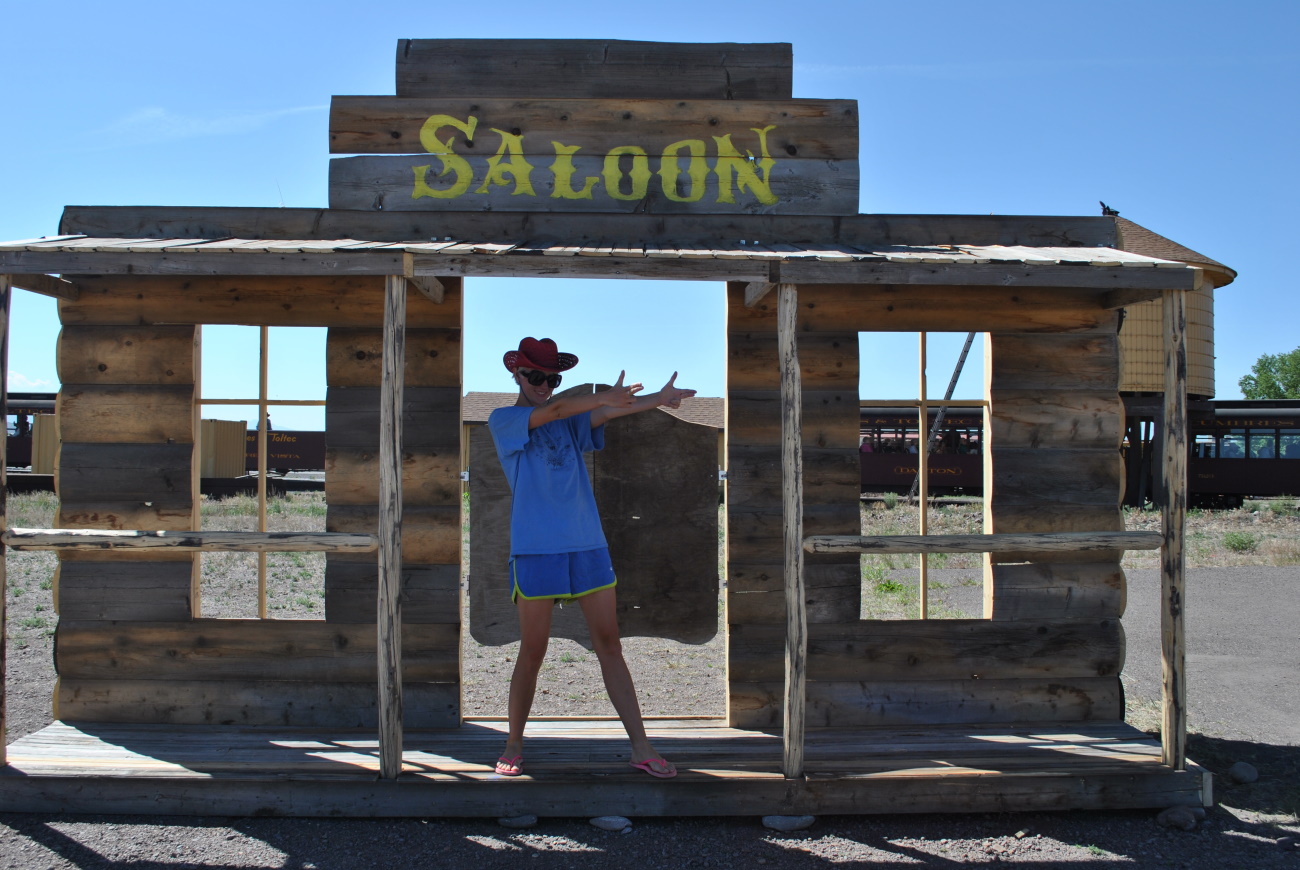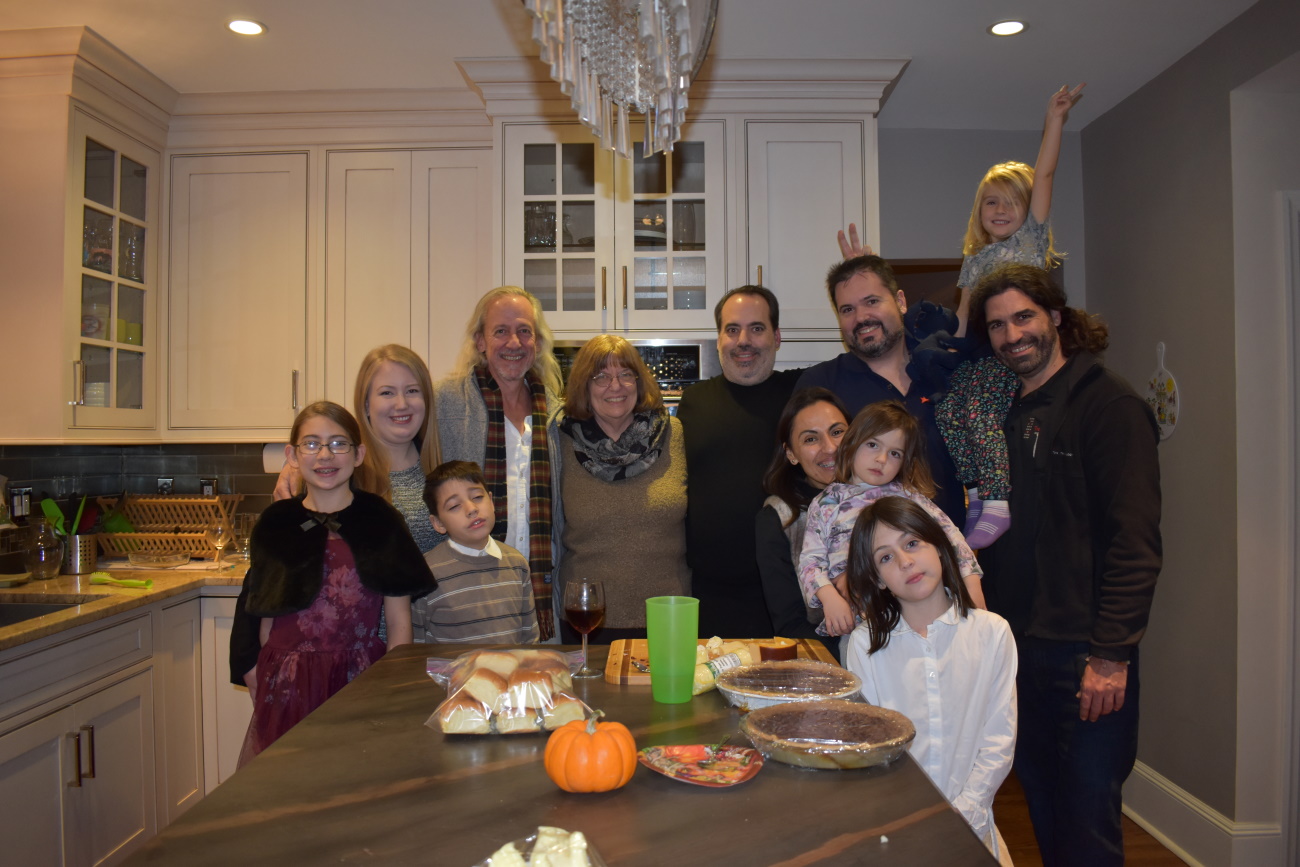
From the Editor: we continue our cycle about IT emigration, dedicated to working abroad, learning languages and other interesting things. In the last article, we talked about the nuances of moving from Ukraine to Spain . Now let's talk about American English.From the author: There is a perception that English is a very easy language, and American English is even more so. But this is a myth. In this article, I'll show you why this is not the case by telling my story of learning American English while traveling in the United States. In addition, I will talk about the accents / dialects of individual states. You can get acquainted with them in a number of films - under the cut there are several examples. In general, if you are learning English, this article will not be superfluous. It does not pretend to be an educational material, but it is quite suitable for general development.
First time in the USA under the Work @ Travel program: a complete failure in communication with Americans
Back in 2009, when I first flew to the USA on the Work @ Travel program, I could not even imagine that I would have problems with American English. At that time I was a student of the Faculty of Foreign Languages with high marks. I considered myself a future translator, and it seemed to me that I had no problems with English. But it seemed to me.
Now I understand that my confidence in English was a castle in the air. After all, I have never met the Americans live or heard their speech. In schools and universities during my studies, and still the emphasis is on grammar and reading, communication with native speakers is minimized. At my university, during 4 years of bachelor's degree, we did not have a single meeting with a native speaker. Instead, at the university, we listened to the stories of English speakers with well-defined diction in a listening pair. Even now, having English, Australians, Americans among my friends, I understand that in real life there are only a few people with such a pronunciation.
Actually, the bottom line: having arrived in the USA under the Work @ Travel program, I absolutely could not understand anything, except for the simplest phrases. It surprised and upset me at the same time. The problem was that I didn't just travel, I worked at Dunkin 'Donuts. It was lucky that the Americans are compassionate people and at first they explained everything to me on their fingers, plus the managers, having understood the situation, gave me a job that did not require communication with clients.
And this despite the fact that I worked in Massachusetts, where the Boston accent prevails, which is quite understandable for foreigners. If I got to Louisiana or Alabama, states, whose residents I still hardly understand, everything could be much worse.
Gradually, everything worked out. For three months of full immersion in American life, I have evolved from the level of "mine is yours not to understand" to tolerable communication with Americans. Even at Dunkin 'Donuts, I was working at the checkout for the last month, which boosted my self-esteem in terms of language.
Work @ travel experience was my first acquaintance with America. But if they told me then that the USA would become my second home, and American English - the main language of communication, I would be very surprised.
Study outside your home country

The trip to the USA pushed me to the decision to study abroad. I didn't want to lose the language experience I had gained over three months of working in the USA. I decided to continue my studies abroad. It is probably largely due to my experience that I was able to pass the entrance exams for the Business Management program in Finland.
Then everything went smoothly. 4 years of study in English in Finland, 6 months of student exchange in South America. I also met my future husband, an American, in the Atacama Desert.
11 years have passed, America has long been my second home, and English is the main language of communication. But problems with understanding Americans still happen. True, it is not entirely my fault here. The fact is that the dialects of some states, the dialects of local residents are so different from the usual American English that even Americans from other states with "normal" English do not understand everything.

We all know that there are British, American, Australian, Irish dialects ... But not everyone knows that in America itself there are more than twenty completely different, dissimilar dialects / accents.
For example, I didn't know. This was a complete surprise for me during my first trip to America with my husband.
Acquaintance with the USA: 40 thousand km, 48 states and 20 dialects
When I no longer had serious problems in communicating with Americans, I easily watched almost any English-language films in the original and even understood what my favorite song was about, my husband and I decided to go on a road trip around the USA. It was 5 years ago.
Our autotrip lasted almost 3 months, we drove through 48 states and covered about 40,000 km. It was then that I got acquainted with all the colorfulness of the country and the variety of dialects and pronunciation. It was then that I realized that I was still very far from the level of the Americans, and everyone, not only from the East Coast.
I remember a funny incident that happened to me in Kentucky in a national park. I spoke to a ranger at the park. He explained how the park is arranged, where the campsite is, what tracks are there, and so on. That is, he probably explained exactly this - I looked at him and could not understand a word. At first I doubted at all whether he spoke English to me. By the way, my husband (remember, an American) understood only half of what the ranger said. This is how I got to know the local dialect.

Of all the existing American accents, the southern dialect, which is typical for the states of Alabama, Mississippi, Louisiana, Tennessee, caused the greatest difficulties for me and still does. I still have to listen carefully, concentrate as much as possible in order to understand what is at stake. Yes, and there is no practice as such: we have no friends from Alabama or Louisiana, we rarely go to the southern states, so I only meet with this dialect in films.
By the way, the most likely to hear this accent will be in films about the war. But he is also in other paintings. If you want to understand what this is about, I recommend these films:
- Forrest Gump (1994)
- Hacksaw Ridge (2016)
- Pearl Harbor (2001)
- Black Hawk Down (2001).
One thing reassures me: it’s not me that I know American English poorly, the Americans themselves from different states hardly understand each other. Our Ohio friends say openly that they barely understand the southern accent. And my husband's mother still recalls a trip to Kentucky 30 years ago and how she communicated with the locals literally on her fingers. Just like me 5 years ago. Only I am a foreigner and my husband's mother is a Native American.
American dialects and how they came to be
It is possible to talk about American accents and the reasons for their occurrence for a very long time, but this is the subject of discussion of philologists, in the article we will only briefly indicate what, how and why.
The United States is a country of immigrants, and it was and continues to be. And only thanks to newcomers from outside America owes its diversity of accents.
For example, the New York accent was formed by mixing Dutch and British. Does everyone know that New York used to belong to Holland and it was the Dutch who were its first settlers? If you love gangster movies, I recommend watching the movie Gangs of New York , which showcases a gorgeous New York accent.
At Southern accentthe greatest influence was made by immigrants from Great Britain, who practically do not pronounce the sound "p", so familiar and dear to our ears.
But the emphasis in Kentucky was formed under the influence of immigrants from Scotland.
With Californianit's not that simple, the main reason here is gold. During the California Gold Rush (1848-1855), the first influx of English immigrants arrived on the West Coast. They were followed by immigrants from all parts of America, including Germans, Danes, French, Poles, Russian Jews, Chinese, as well as people from the southern states who also traveled to California in search of a better life. All have shaped what became the Californian dialect / accent over several generations. Curiously, it is the Californian dialect that is considered the closest to what is called General American, or Standard American Variant.
General American accent — «» , . , ( , ) .
,

My husband was born and raised in Delaware, here everyone speaks a dialect / accent that is quite understandable to our ears. I had no difficulty understanding it. The Delaware dialect belongs to Philadelphia, whose development was influenced by immigrants from Northern England, Scotland and Northern Ireland.
As with any region, Delaware has its own characteristics. For example, water / water / water is pronounced wooder / wooder, and creek / cry / trickle in Delaware is pronounced as crick / kryk. And the familiar word bagel / bagel / bagel in our state is pronounced as beggle / bagel.

There are also own words. So, hoagie (sandwich), spicket (crane), toad choker (heavy rain) and a dozen other words and expressions will be generally incomprehensible to the natives of other states. Even more so for foreigners.
Some tips for English learners
If you are serious about mastering the main American dialect (or some other), watch films and TV shows in the original, first finding out which dialect / dialect is used there. Heavy? Connect subtitles.
The most effective way is to start watching a short (20 minutes) interesting TV series and watch it every day. Every day for 20 minutes is much better than once a week, but 2 hours. I can recommend How I met your mother , The Big Bang Theory , Modern Family .
I strongly advise not just watching, but using TV shows / films for educational purposes. Start a notebook or notebook and write down any expressions you don't know or like. The notebook will become your piggy bank of idioms, words and expressions!
When you feel confident in your abilities, you begin to understand most of the episode, move on to full-length serials, where one episode lasts 40-50 minutes. There are a lot of American TV shows, so I won't recommend anything specific, because everyone has different tastes.
Plus, listen to podcasts. Audiobooks with perfect pronunciation are a thing of the past. Podcasts with real people and real accents are what will help you in your language learning. They are good for several reasons:
- Today, a podcast can be found on ANY topic: travel, technology, marketing, cooking, sports, etc.
- It is convenient to listen to the podcast on the road, when you play sports, when you cook or clean up.
- Many podcasts provide transcriptions of their episodes, and if something is not clear, you can read the text and then listen to the audio again.
- There are tons of apps for listening to podcasts, so keep your podcast with you.
Since I work in smm marketing and copywriting, I listen to podcasts on these topics.
My favorite:
I would also like to mention TED Conference - a collection of videos on a variety of topics, from space to nutrition. By the way, the TED Talks videos were my first videos that taught me to understand spoken language. All videos have a transcription, which helps a lot at first.
And of course, if there is a chance to practice English with native speakers, don't miss it. A conversation with a real person will always replace a movie or podcast.
And if you are interested in the topic of American accents, watch these videos. I'm sure you will like it. As they say, instead of a thousand words ...
- Excellent transcribed video at businessinsider.com that illustrates accents from New England, New York, Delaware, Southern States, Midwest, Texas, California.
- , 8 ,
- - - .
In conclusion, I'll be a little Captain Obvious. Just stress the importance of the opinion that learning a foreign language is an ongoing activity. With languages, there is always something to strive for: whether it be enrichment of vocabulary, work on grammar or daily work on pronunciation.
Today, 11 years after my first trip to the USA, my English is at a high level. I have no problems either in everyday communication or at work. When communicating, Americans are no longer able to tell from my pronunciation which country I am from. And even in spite of all this, I still watch some films with subtitles (the southern dialect never gave in to me). Literally every day I hear new expressions, idioms, words that I don't know. Much is surprising.
In general, remember that English is not as easy as many people think. Therefore, if you have a dream to speak English, take the first steps towards learning it today. Only the early bird catches the worm.
Author: Lilia Dekos
